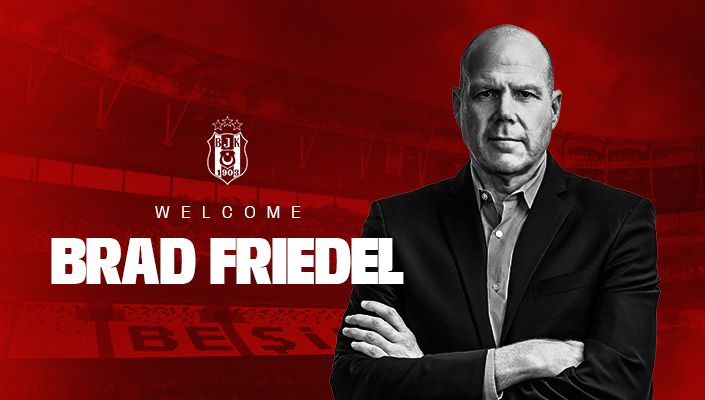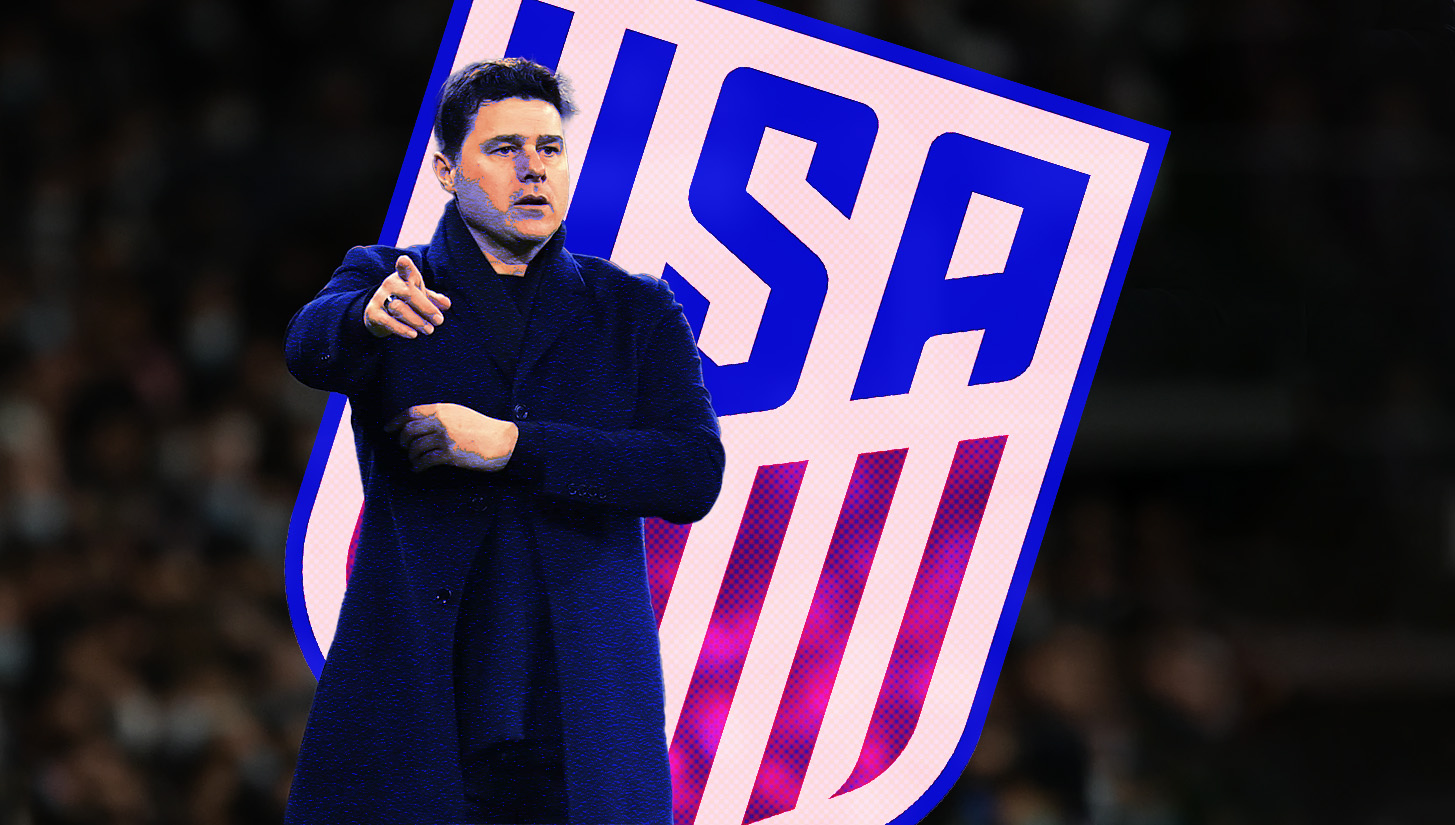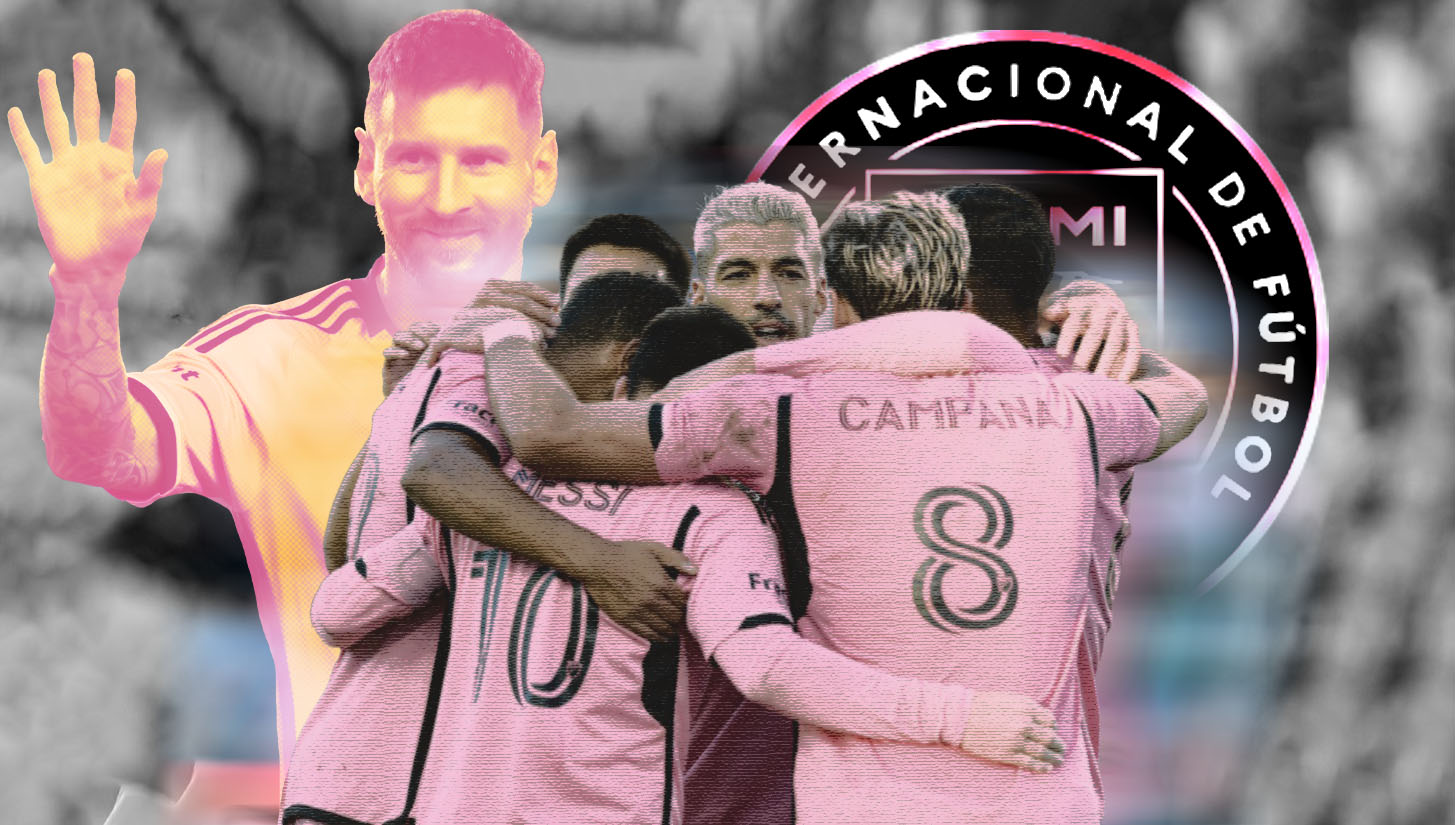We sit down with Tab Ramos, one of the greatest players to ever don a USMNT kit, to discuss working with Brad Friedel at Beşiktaş, his expectations for the USMNT under Mauricio Pochettino, and what MLS needs to do to become a true national league.
Tab Ramos is an authority when it comes to soccer in the United States. On a skill level, few Americans could ever compare to his talent, and he influenced a generation of players as he starred for the U.S. men’s national team throughout the ’90s.
In his native Uruguay, many pundits have said that had Ramos not immigrated to the United States, he might have played for La Celeste instead of the USMNT.
Ramos has seen it all — from playing the sport he loves in total obscurity in the late ’80s as the American Soccer League folded, to the 1990 World Cup in Italy, which kickstarted the rebirth of United States soccer, to being the first-ever Major League Soccer player. As a head coach, he’s seen various levels from the U-20 U.S. national team to the MLS ranks with the Houston Dynamo.
Ramos knows the ins and outs of soccer in the United States. As such, his former USMNT teammate Brad Friedel, who is advisor on the board of directors at Turkish club Beşiktaş, brought him over to become the team’s director of scouting for North and South America. We sit down to talk about his new role, as well as his thoughts on the current USMNT squad under new head coach Mauricio Pochettino.
Urban Pitch: You’ve reunited with Brad Friedel at Beşiktaş. Was this an opportunity you had discussed before, or did it come up unexpectedly?
Tab Ramos: It wasn’t completely unexpected over the last few months, but it also wasn’t something I thought I would be doing six months ago. I’m very excited about the role. Beşiktaş is such a huge club, and we’re really looking for impact players. It’s a different type of scouting than your usual search for a young gem; we’re looking for players who can make an impact now, as well as in the future.

How has Brad Friedel adjusted to his new role? He had coaching experience, and was involved in MLS and USSF. Does this role suit him?
I think he’s doing well. He had some difficulties at the start, as you do when you join a club — especially a big one — where there’s a lot of turnover. Last year, the club had several different coaches, but Brad had the right ideas. One of those ideas was to have someone on the ground in the Americas. Brad thought it would be a good idea to expand their scouting efforts, and he felt I would be a good fit for what he was looking for.
I’m focused on North and South America, particularly Argentina, Uruguay, Brazil, Colombia, and Ecuador.
In recent years, former USMNT players have taken on these kinds of executive roles. You’ve got Earnie Stewart at PSV, Jovan Kirovski as director of AC Milan’s youth academies, and now Brad Friedel in Turkey. How important is it for former U.S. players to be landing these roles? And does it feel strange that your generation hasn’t landed similar roles in MLS?
I think MLS has a different philosophy on these types of hires. They tend to hire more analytical people for these roles, rather than traditional soccer people. So, it’s a bit different in MLS than it is in Europe. I’m not surprised that Americans, especially those who have been in the game for a long time, are seeking opportunities overseas.
There’s also American involvement in major clubs like PSV, AC Milan, and teams in the Premier League, either at the ownership or executive level. These aren’t small clubs. It’s not like they’re “moneyballing” when it comes to resources and spending.
Well, you always have to stay within the rules of whatever league you’re in. MLS is a very rules-driven organization, and all the rules come from one place. In the rest of the world, teams work within the legal boundaries of their league and do whatever they can to have the best team possible.
In my case, I’m working for a club whose goal is to qualify for the Champions League, and that’s the scale we’re talking about. It’s a different level altogether.

Moving on to the current USMNT, where Mauricio Pochettino is the new manager. He’s an emergency hire, with only about a year-and-a-half to work with our core group. What can we truly expect from Pochettino?
I think, in the end, we as a nation believe we’ve brought in one of the best coaches in the world. We’ve paid for the best person available at the time. What we expect is that this team will get the best results it possibly can, and while I don’t think this will be the best team we’ve ever had, we can aim for the best results we’ve ever had with this group.
That being said, we need to be patient. There’s always a learning curve with any coach, no matter how experienced. Pochettino has some tools that other coaches we’ve had in the past might not have. He’s been a coach at the club level and has a lot of experience in that area. He also played for Argentina, so he brings a wealth of experience to the table. We hope he can use all of that to give us the best results possible.
One of the things I’ve noticed early on with Pochettino is his intensity and his desire to end the “friends club” mentality from Gregg Berhalter’s era. He’s including new faces like Busio, Tessmann, and McKenzie, but pundits are still calling for players like Diego Luna and Paxten Aaronson. Does Pochettino have time to really evaluate that generation of players under our current core, or is the squad pretty much set?
First of all, you only bring in new players if you think they’re better than what you have right now. If a player isn’t getting the job done, you look at who’s available to replace them, and there’s always a pecking order. I think Pochettino is calling in the best players available to him, and he’s doing the best he can with the roster at his disposal.
Will he change his mind in six months? Maybe. The good thing for Pochettino is that there’s no pressure on him in terms of results or necessarily having the team play perfectly. We’re still recovering from the last five years of the cycle. It takes time to change the mentality of the players and to shift the style of play.
As a coach, you put pressure on yourself to win, but the reality is that Pochettino needs to get to know the players. He needs to see how they react to his coaching. There will be a lot of misses, and there will be changes.
If I had any questions, it would be about Tim Ream. Is he someone we’re considering for 2026, or is he just there for experience to help the younger players? I can’t imagine Tim Ream playing in 2026, given his age and current form. But the goal is to be as good as we can be for 2026, and whatever Pochettino does, we have to support it. We all need to contribute to making this work.
Pochettino is a big-name coach, and U.S. Soccer doesn’t have a good history with big-name coaches. Jürgen Klinsmann and Bora Milutinović, despite some successes, faced many challenges in their stints as manager. Has the federation learned from past experiences with big-name coaches?
I’m not sure if they’ve learned their lesson or not. My personal opinion is that national teams should be coached by someone from that country. That’s how I feel about national teams in general.
In terms of leadership, we’ll have to wait and see how things go. Cindy Parlow Cone’s time as U.S. Soccer president will eventually end, and we’ll see if Matt Crocker sticks around long-term.
Right now, what’s important is unity, so we can have the best possible team for 2026. After 2026, I hope there will be changes in some areas and improvements in others.
As for our youth teams, I don’t think we’ve made much progress in the last five or six years. After 2026, we’ll need to reassess the situation and make some changes.

Moving to MLS, what did you make of Inter Miami’s first full season with Lionel Messi?
I think they were exciting to watch. You always had the feeling that something special was going to happen. Luis Suárez, what a player. No matter where he is, he’s always a goal-scoring threat. I’m sure MLS are upset that they got knocked out, but it was a best-of-three series, and they had their chances. It was a fun team to watch all season.
In Atlanta United’s case, some say they got lucky, but they won two out of three. I don’t think you can call that luck. It’s just the nature of the game.
You’ve spoken about MLS and the need for the league to attract a mainstream audience. Is that the next step for MLS — to become a true national league and attract more attention outside of local markets?
There are people smarter than me at MLS thinking about that. But yes, there are fans who follow MLS. I think it’s amazing that teams have beautiful stadiums and strong local fan bases, but those fans aren’t necessarily watching the rest of the league. They support their team, but they don’t follow the league as a whole.
Right now, MLS isn’t consumed in the way it needs to be. We need fans who follow their team day to day and also watch the rest of the league. The league has done a great job developing academies and improving club organizations, but from what I understand, teams aren’t making money. Maybe the Apple deal helped put a Band-Aid on that.
You’ve been calling games for six years. What are some of the most memorable matches over that span?
That’s a tough question. I really enjoyed calling Canada vs. Morocco in 2022 — the Moroccan fans were incredible. I also liked calling the U.S. vs. England game just because of the atmosphere in the stadium. I had high hopes that we’d win that game and make a big splash at the World Cup.
What’s your soccer wish for 2025?
My wish for 2025 is that, after a year of working with Pochettino, we restore positivity and confidence in our national team. That will give us hope for 2026.








